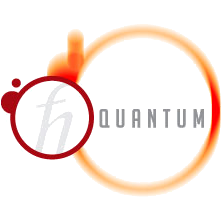Quantum ESPRESSO is an integrated suite of Open-Source computer codes for electronic-structure calculations and materials modeling at the nanoscale. It is based on density-functional theory, plane waves, and pseudopotentials.
Find Quantum ESPRESSO at: http://www.quantum-espresso.org/
Categories
- Conferences (3)
- education (10)
- Fun (58)
- Meta (12)
- Open Access (10)
- Open Data (13)
- open science (34)
- Policy (48)
- Science (135)
- Software (633)
- Acoustics (3)
- Engineering (1)
- Physical (1)
- Speech Communication (2)
- Structural (1)
- Anthropology and Archaeology (3)
- Artificial Life (9)
- Astronomy (21)
- Aviation and Aeronautics (2)
- Chemistry (131)
- Analytical (4)
- Atmospheric (1)
- Biochemistry (6)
- Biophysical (3)
- Chemical Information (3)
- Crystallography (2)
- Electrochemistry (1)
- Molecule Viewers and Editors (39)
- Organic (2)
- Synthesis (1)
- Periodic Tables (3)
- Physical (1)
- Kinetics (1)
- Polymers (1)
- Spectroscopy (9)
- NMR (5)
- Surfaces (1)
- Theoretical and Computational (45)
- Cognitive Science (3)
- Neural Networks (2)
- Complex Systems (2)
- Computer Science (22)
- Algorithms And Computational Theory (2)
- Artificial Intelligence (4)
- Data Communication (4)
- Information Retrieval (1)
- Knowledge Discovery and Data Mining (3)
- Languages (1)
- Fortran (1)
- Measurement and Evaluation (1)
- Simulation and Modeling (2)
- Software Engineering (2)
- Symbolic and Algebraic Manipulation (1)
- Earth Sciences (19)
- Geology and Geophysics (5)
- Hydrology (5)
- Meteorology (1)
- Oceanography (3)
- Energy (3)
- Engineering (24)
- Forensics (2)
- Geography (12)
- Information Technology (1)
- Life Sciences (60)
- Bioinformatics (34)
- Ecology (5)
- Evolution and Population Genetics (3)
- Statistical (1)
- Theoretical (1)
- Genetics (9)
- Population (1)
- Medical Sciences (7)
- Physiology (2)
- Linguistics (2)
- Mathematics (108)
- Abstract Algebra (9)
- Combinatorics (1)
- Differential Equations (17)
- Fluid Dynamics (7)
- Ordinary (3)
- Partial (7)
- Dynamical Systems (4)
- Education (1)
- Geometry (3)
- Linear Algebra (26)
- Number Theory (6)
- Numerical Methods (5)
- Optimization (12)
- Probability (1)
- Set Theory (1)
- Statistics (8)
- Topology (1)
- Measurements and Units (3)
- Nanotechnology (2)
- Physics (30)
- Astrophysics (1)
- Atomic and Molecular (1)
- Computational (2)
- Condensed Matter (4)
- Dynamics (2)
- Fluid (1)
- High Energy (4)
- Magnetism (1)
- Materials (1)
- Nuclear (4)
- Optics (5)
- Plasma (1)
- Required Reading and Other Sites (25)
- Space (3)
- Tools (56)
- Numerical Libraries (8)
- Random Number Generators (2)
- Visualization (18)
- 2D Plotting (8)
- 3D Plotting (2)
- Acoustics (3)
- Uncategorized (4)


I’m intrigued by your comment that some niches “desperately” need open source codes.
In particular, I didn’t think solid-state DFT was hurting, since there are already several:
Abinit
PWscf
DFT++
…
I’m probably forgetting some.
Perhaps you could post about your thoughts for other open niches. Maybe it’ll encourage some folks to open their codes?
Geoff,
As you say, there are a certainly a number of open-source plane wave codes (Dacapo is another popular one). However, Vasp is still tough to beat on acceptance, performance and general purpose utility, and it is about as closed as one can get (i.e. even the pseudo-potential library is closed source, which is a huge problem for public verifiability).
Other areas in which it would be great to find a greater acceptance of open source (at least in Chemistry):
I’m sure I just haven’t yet heard about some cool open source tools that do exactly what these tools do (perhaps even Avogadro does them now), but if so, they certainly haven’t made inroads with my colleagues. Perhaps I’m most interested in how we can get a greater acceptance of open source codes in niches where there are monolithic usage of currently closed codes.
I’m not sure we meet your every need yet, but Avogadro certainly does much of this now. (Well, the surface “cleaver” will hit soon.)
I think people will accept open codes when they see a benefit. IMHO, we chemists are a pragmatic bunch, so when there’s a working commercial solution, people don’t bother looking for something better.
Making people aware of new solutions requires “marketing”, (i.e., publications, presentations, etc.) and word-of-mouth. Both take time. Jmol spread fairly fast because people could bookmark and share the cool webpages. Desktop software is more entrenched.
Can anyone please explain me how to install quantum espresso downloaded from http://www.quantum-espreso.org that does not contain .exe file
Please …….
@venkataramudu
./configure
make
make install
you need a build (compilation) system, like linux, cygwin or (probably won’t work) MSVisualStudio.
good luck,